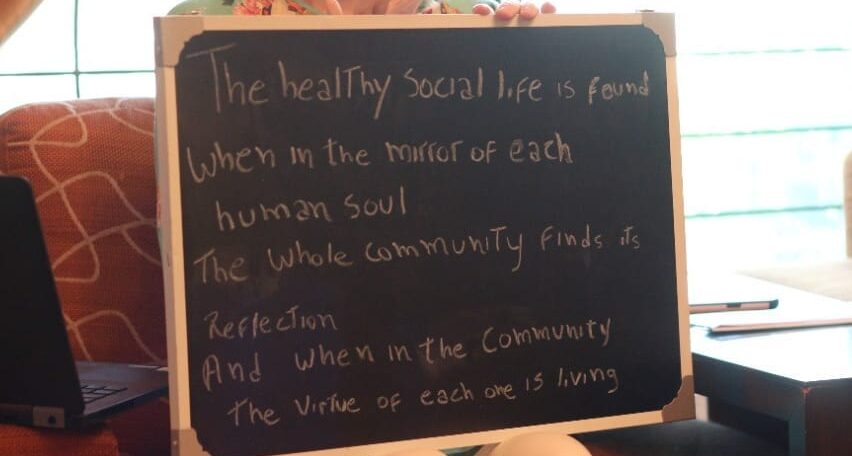
Localizing Waldorf
Waldorf education has been an alternate education system in many European countries for some time. However, many Eastern countries have increasingly adopted it, who sometimes struggle with adapting it according to the local language and culture.
If you were not able to attend our talk on Localizing Waldorf last month by Alni Terreri and Mariam Zaidi, then it’s okay. Here are some of the key takeaways from the session:
Big Question: Localizing Waldorf is a big question within the Waldorf community, and everyone around the world is struggling to integrate it into their local culture. Hence, there is no simple answer to it.
Spiritual Connection: Many people choose Waldorf education because it tries to develop a spiritual connection of the child with its surroundings. Nowadays, we are lost in the material world and lack the ability to connect with people mentally and emotionally. Such an environment nurtures children who have an individualistic approach to life and may struggle at different levels.
The connection with mind-body-soul, or in other words, thinking-feeling-willing or head-heart-body, is even discussed in the contemporary education system under the banner of ‘holistic education’. This triangulation has proven to develop an individual who is a free thinker and has the ability to make their own decisions, act upon them, and take ownership.
Keep Universality: It is okay to develop content around local history, culture, and religion, but children should be aware that people with different backgrounds also exist. For example, as Pakistan has people from other faiths as well, it is preferred that if there is a child from Christianity in class, then Christmas should also be celebrated along with Muslim festivals. Generally, the idea should be to promote global citizenship rather than nationalism.
Content: The subjects and events in the school should also revolve around local topics. For example, the stories, professions, food, plants and animals that are locally present are more relevant to children than the objects and cultures they have only seen in books and television.
Festivals: Celebrating different festivals is an essential component in a Waldorf school or classroom. These festivals may range from Birthdays to religious to national celebrations or events. In most cultures, festivals have a sacred connection and a link to the natural world. For example, Eid is linked to the lunar calendar, and Christmas is related to winter in the northern hemisphere. To localize festivals in Waldorf, it means adding universality so that all children can celebrate them together. The story of Prophet Ibrahim (PBUH) and Prophet Ismail (PBUH) can be changed into a story of a father and son and their love for God. Hence, the teachers are allowed to change the name of the festival, if possible, to something more general so that everyone in the class can celebrate it. Secondly, the school can also develop their festivals to add their unique relaxation period in the school year. This develops a sense of community in school and makes students, staff, and parents feel safe and connected.
Teachers and Parents: The work of teachers and parents is essential in the upbringing of children. For this, both need to be true to themselves and only practice what they want to see reflected in the children. If a parent wants the child to work with their own hands, they should add this to their routine work. Similarly, if teachers want the children to stay on the chairs while having food, they should also not leave the table in the middle of the meal. Children imitate the adults around them; therefore, both the teachers and the parents should model the behavior and qualities they want to see in the children.
Share with us how you have been trying to practice these teaching methods even at your own level. Email here:farwa@oneearthtoys.pk




General Issue